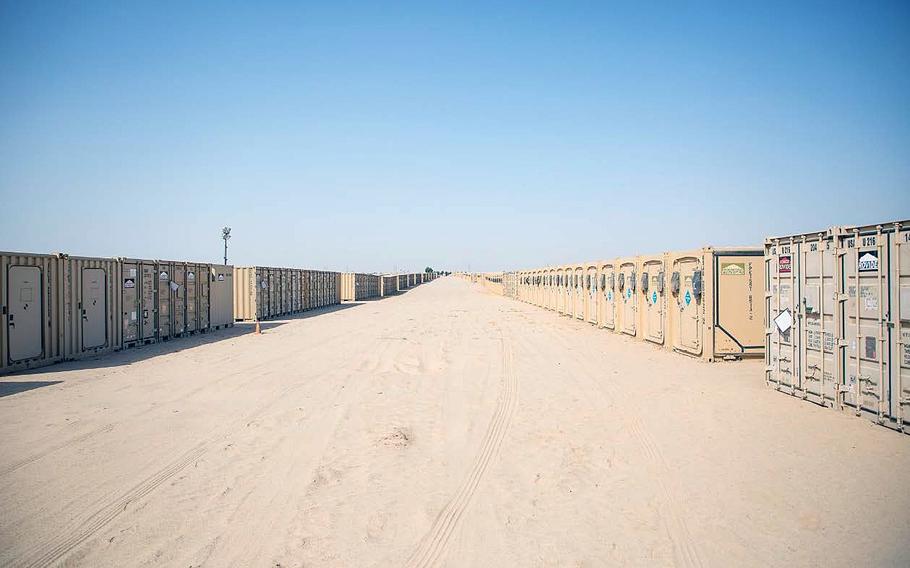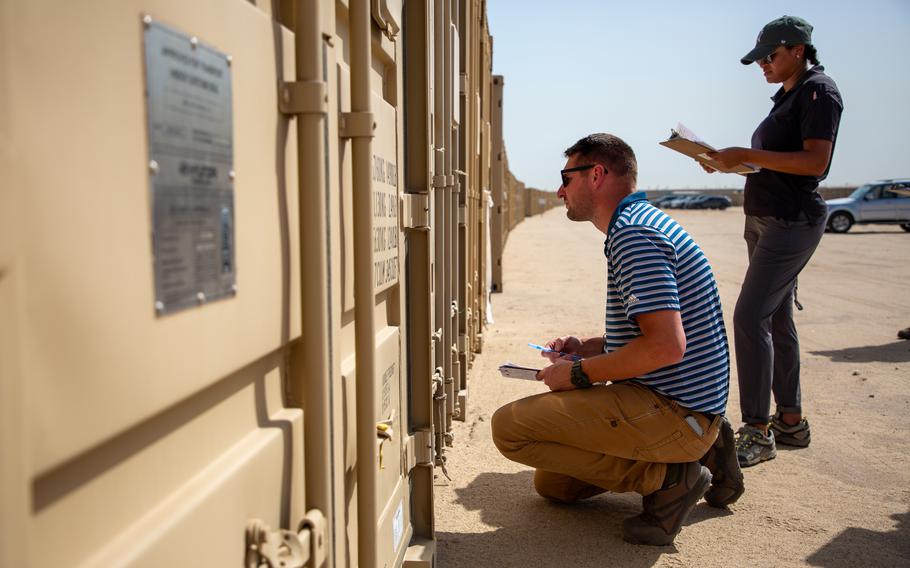
Storage containers for Army tent cities are shown at an undisclosed location. A recent Defense Department Inspector General audit found that the Army and its contractors failed to adequately manage the modules stored in the U.S. Central Command area. (U.S. Army)
Fixes are in the works for the way the Army cares for its tent cities, spurred by a finding that some U.S. Central Command forces got defective gear as a result of years of improper storage and maintenance.
The service used outdated storage plans for its containerized living systems and delayed training for more than four years, resulting in inadequate management of the equipment stored in the CENTCOM region, according to a recent audit by the Defense Department Inspector General.
In one example, troops in an undisclosed location in 2022 received ripped tents and faulty generators and latrines as a result of the poor management and record keeping, said the report, which covered from 2020 to 2024.
Known as Force Provider Modules, the systems furnish soldiers with climate-controlled housing, showers, latrines, kitchens and laundry facilities in the field.
Each system consists of 24 to 32 shipping containers with optional add-ons that can outfit the camps with cold-weather facilities, large-scale kitchens or recreation facilities.
The systems are stored in four regions around the world, including the Middle East, and can quickly be deployed by land or sea to support soldiers within one or two days.
The heavily redacted report does not detail the total number of systems or their storage locations, but the inspector general found that at times the container units were improperly held in outdoor locations, exposing them to the elements.
Contractors were also not instructed in proper maintenance or inventory methods, meaning sometimes the Army sent out equipment that didn’t work.
In response to the findings, Army officials at the unidentified units agreed to take sufficient action to address recommendations, the IG said.
One recommendation is that the Army agency responsible for managing the availability of parts and support for combat vehicles including tanks, armored vehicles and other tactical equipment, update its storage supply plan and create a detailed process for maintenance training.
The report also recommended that the Army’s principal logistics adviser require all storage site personnel to record in the service’s inventory database details about which components require maintenance.

Defense Department Inspector General staffers examine the condition of equipment modules at Camp Arifjan, Kuwait, in May 2024. The Army and its contractors did not adequately manage tent city equipment that was stored in the Middle East, according to recent report by the department's IG. (Joseph Kumzak/U.S. Army)